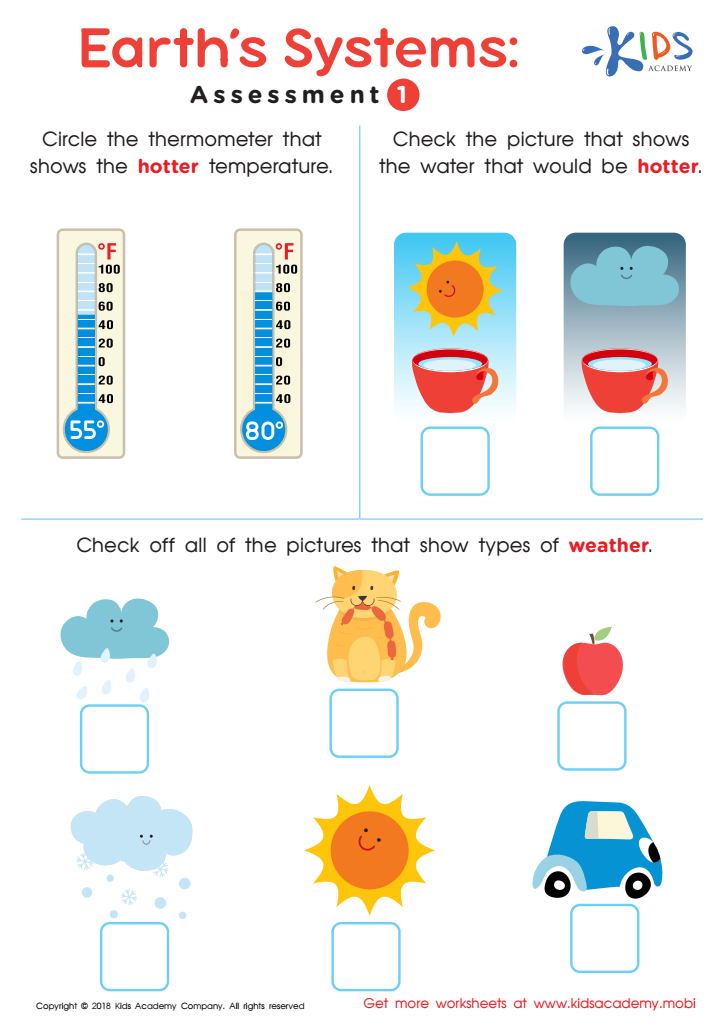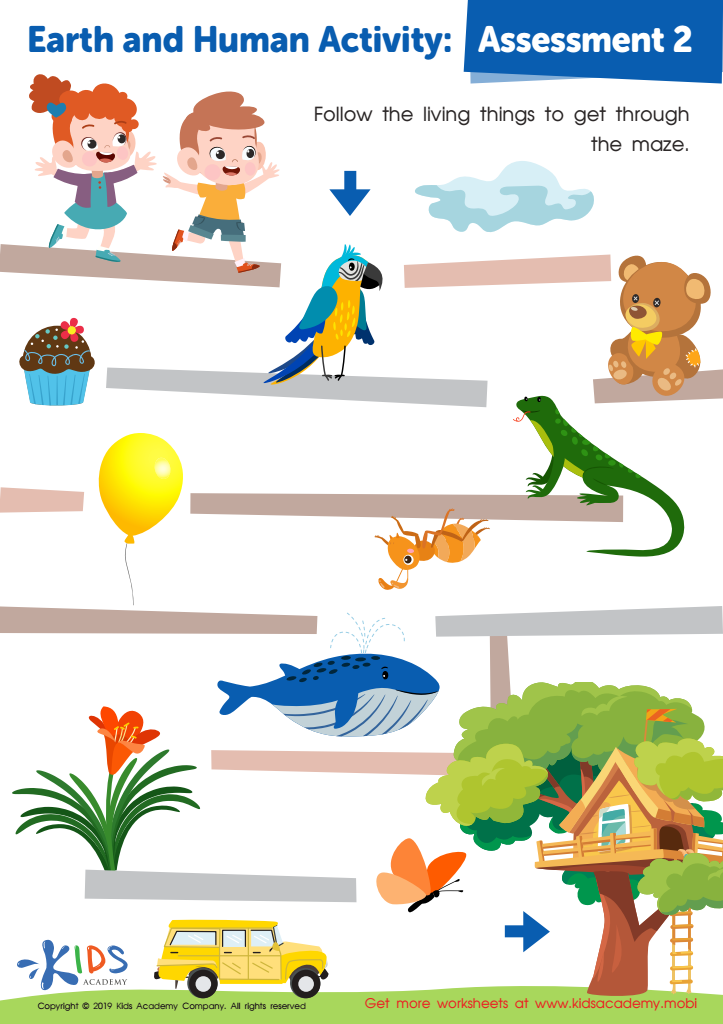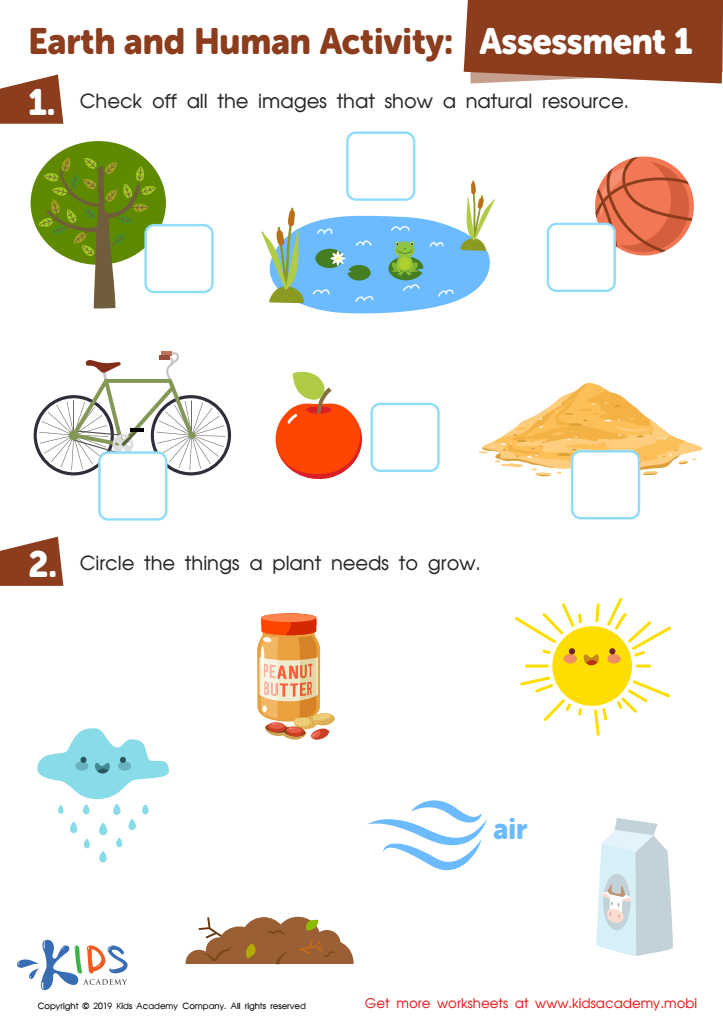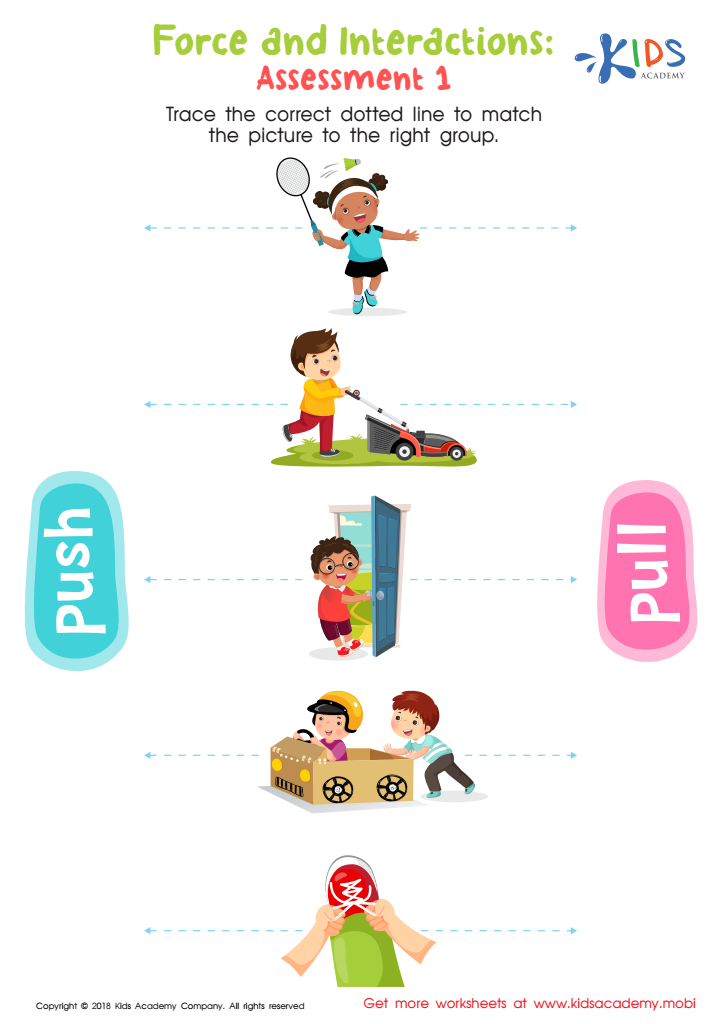Science Worksheets Activities With Answers for Ages 3-4
5 filtered results
-
From - To
Welcome to our engaging collection of science worksheets and activities designed specifically for ages 3-4! Our user-friendly resources stimulate curiosity about the world around them through fun, interactive tasks. Each worksheet includes colorful illustrations and simple instructions that encourage young learners to explore fundamental scientific concepts, from identifying animals to understanding the weather. Additionally, we provide answer keys to help parents and educators easily assess learning progress. Perfect for home or classroom use, these science activities foster early cognitive skills while making learning a delightful experience. Ignite your child’s curiosity and enjoy hours of educational fun today!


Force and Interactions: Assessment 1 Worksheet


Earth's Systems: Assessment 1


Earth and Human Activity: Assessment 2 Worksheet


Earth and Human Activity: Assessment 1 Worksheet


Force and Interactions: Assessment 2 Worksheet
Parents and teachers should pay close attention to science activities designed for ages 3-4 because these early experiences lay the foundation for a child's curiosity, critical thinking, and problem-solving skills. At this young age, children's brains are incredibly receptive, making it an ideal time to introduce concepts related to the natural world. Engaging in hands-on science activities helps children make observations, ask questions, and explore their environment, fostering a sense of wonder about how things work.
Moreover, these activities promote essential skills such as fine motor development through manipulation of materials and conducting simple experiments. They encourage communication skills as children discuss their findings and share ideas. Furthermore, providing structured science questions and answers can guide children's thinking, helping them develop reasoning and the ability to articulate their thoughts.
Incorporating science within the curriculum also supports STEM (Science, Technology, Engineering, and Mathematics) education from an early age, an essential aspect of modern education that prepares children for future academic and career opportunities. Overall, nurturing an interest in science early on helps cultivate lifelong learners who are better prepared to engage with the world around them with curiosity and confidence.
 Assign to My Students
Assign to My Students
















